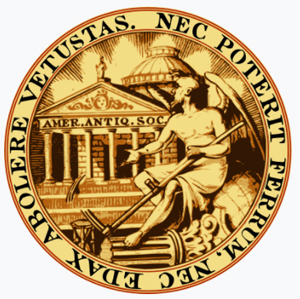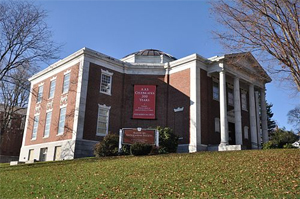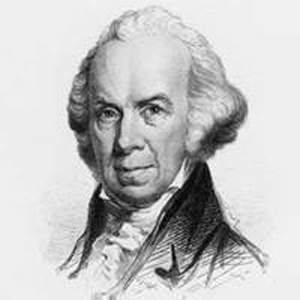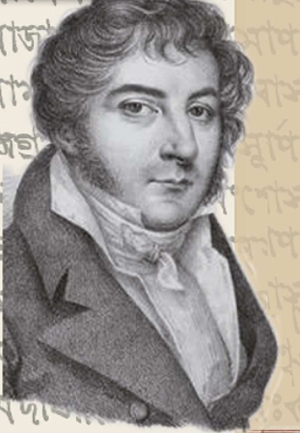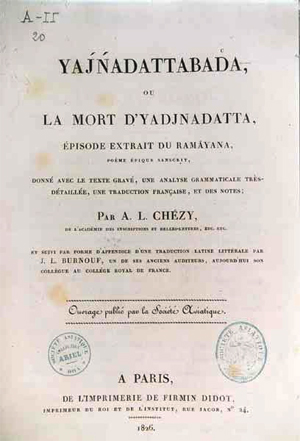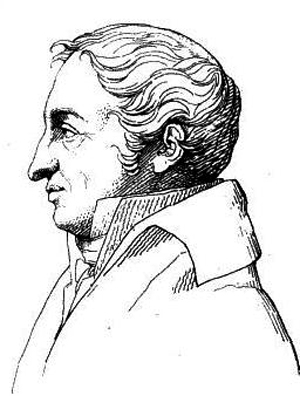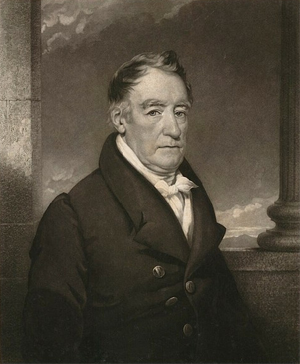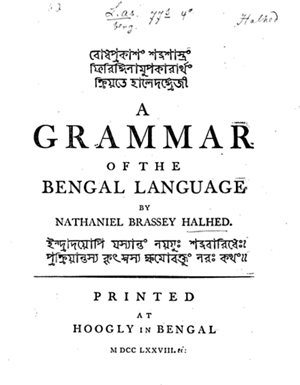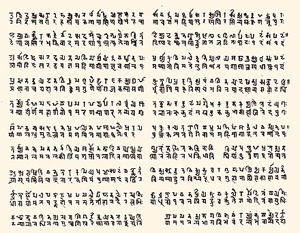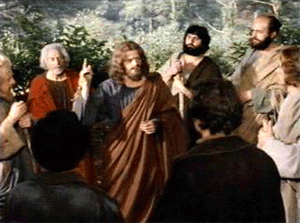Part 2 of 2
VI. EVALUATION OF MEANSWe must now turn to the evaluation of means. We must ask whose means are superior and lasting in the long run. There are, however some misunderstandings on both sides. It is necessary to clear them up. Take violence. As to violence, there are many people who seem to shiver at the very thought of it. But this is only a sentiment. Violence cannot be altogether dispensed with. Even in non-communist countries a murderer is hanged. Does not hanging amount to violence? Non-communist countries go to war with non-communist countries. Millions of people are killed. Is this no violence? If a murderer can be killed, because he has killed a citizen, if a soldier can be killed in war because he belongs to a hostile nation, why cannot a property owner be killed if his ownership leads to misery for the rest of humanity? There is no reason to make an exception in favour of the property owner, why one should regard private property as sacrosanct.
The Buddha was against violence. But he was also in favour of justice, and where justice required, he permitted the use of force. This is well illustrated in his dialogue with Sinha Senapati the Commander-in-Chief of Vaishali. Sinha having come to know that the Buddha preached Ahimsa went to him and asked:
"The Bhagvan preaches Ahimsa. Does the Bhagvan preach an offender to be given freedom from punishment? Does the Bhagvan preach that we should not go to war to save our wives, our children and our wealth? Should we suffer at the hands of criminals in the name of Ahimsa?"
"Does the Tathagata prohibit all war, even when it is in the interest of Truth and Justice?"
Buddha replied. You have wrongly understood what I have been preaching. An offender must be punished, and an innocent man must be freed. It is not a fault of the Magistrate if he punishes an offender. The cause of punishment is the fault of the offender. The Magistrate who inflicts the punishment is only carrying out the law. He does not become stained with Ahimsa. A man who fights for justice and safety cannot be accused of Ahimsa. If all the means of maintaining peace have failed, then the responsibility for Himsa falls on him who starts war. One must never surrender to evil powers. War there may be. But it must not be for selfish ends...."
There are of course other grounds against violence such as those urged by Prof. John Dewey. In dealing with those who contend that the end justifies the means is [a] morally perverted doctrine, Dewey has rightly asked what can justify the means if not the end? It is only the end that can justify the means.
Buddha would have probably admitted that it is only the end which would justify the means. What else could? And he would have said that if the end justified violence, violence was a legitimate means for the end in view. He certainly would not have exempted property owners from force if force were the only means for that end. As we shall see, his means for the end were different. As Prof. Dewey has pointed out that violence is only another name for the use of force and although force must be used for creative purposes a distinction between use of force as energy and use of force as violence needs to be made. The achievement of an end involves the destruction of many other ends, which are integral with the one that is sought to be destroyed. Use of force must be so regulated that it should save as many ends as possible in destroying the evil one. Buddha's Ahimsa was not as absolute as the Ahimsa preached by Mahavira the founder of Jainism. He would have allowed force only as energy. The communists preach Ahimsa as an absolute principle. To this the Buddha was deadly opposed. "The memos and other material collected in this book reveal how political lawyers in the Administration adopted an 'ends justify the means' policy, and tailored their advice to justify torture and avoidance of obligations under the Geneva Conventions. They lost their own moral compass in the process and created a brief for the enemies of America to use the tactics they sought to justify against present and future American servicemen and women captured by our enemies." -- JAMES CULLEN (Brig. General U.S. Army Ret.)
-- The Torture Papers: The Road to Abu Ghraib, edited by Karen J. Greenberg and Joshua L. DratelJust war tenets were devised to specify when the use of violent force is morally justified. However, given people’s dexterous facility for justifying violent means all kinds of inhumanities get clothed in moral wrappings.
Voltaire put it well when he said, “Those who can make you believe absurdities can make you commit atrocities.” Over the centuries, much destructive conduct has been perpetrated by ordinary, decent people in the name of righteous ideologies, religious principles and nationalistic imperatives (Kramer, 1990; Rapoport & Alexander, 1982; Reich, 1990).
-- Moral Disengagement in the Perpetration of Inhumanities, by Albert BanduraWhen you realize that these bibles of Communist philosophy teach deceit, murder, lies, and treachery as the very basis of the path to the Communist Utopia you will realize the futility of trying to make treaties with the U.S.S.R., as our own experience has proven time after time. Remember that the end justifies the means is the foundation of Communism.
-- A Business Man Looks At Communism, by Fred C. KochAnd in a sick, twisted manner, working on a theory that the end justifies the means, the CIA published its killer’s manual, breaking down the art of committing the perfect assassination into eight major categories, including definition, employment, justification, classification, the assassin, planning, techniques and examples.
-- CIA Publishes Its Own "Assassin's Manual," Proving It Condones Killing Those Who Oppose U.S. Policy: The CIA 'Killer's Manual' was kept out of the public eye for years, but now we know it teaches the 'fine art' of assassination as if it was a mandatory college course, by Greg SzymanskiFurthermore, the Illuminati principle that the end justifies the means, a principle that Quigley scores as immoral and used by both The Group and The Order, is rooted in Hegel.
-- America's Secret Establishment: An Introduction to the Order of Skull and Bones, by Antony C. SuttonIt never occurred to him that in his fanaticism he was becoming more like Ho Chi Minh than his childhood hero, Thomas Jefferson. The enemy, too, investigated and judged people secretly without giving them an opportunity to defend themselves. They passed sentence and executed men and women secretly-all justified by thousands of secret documents that were never subjected to proper and objective scrutiny or challenge. Had someone pointed that out to McKenney, he would would have answered that his goal was vastly different from that of the communists. He did not understand until much later that "that was just another way of expressing the communist creed he professed to abhor: 'the end justifies the means.'"
-- Spite House: The Last Secret of the War in Vietnam, by Monika Jensen-StevensonThe Illuminati aims to overthrow all government and religion, setting up an anarcho-communist free-love world, and, because "the end justifies the means" (a principle Weishaupt acquired from his Jesuit youth), they didn't care how many people they killed to accomplish that noble purpose.
-- The Illuminatus! Trilogy, by Robert Shea and Robert Anton WilsonA good many people now have misgivings about the aerial distribution of lethal chemicals over millions of acres, and two mass-spraying campaigns undertaken in the late 1950's have done much to increase these doubts. These were the campaigns against the gypsy moth in the northeastern states and the fire ant in the South. Neither is a native insect but both have been in this country for many years without creating a situation calling for desperate measures. Yet drastic action was suddenly taken against them, under the end-justifies-the-means philosophy that has too long directed the control divisions of our Department of Agriculture.
-- Silent Spring, by Rachel CarsonBermudez told the cocaine smugglers that “the ends justify the means” in raising money for the Contras.
-- The Warning in Gary Webb’s Death, by Robert ParryEverything is good or bad according to the use made of it and the advantage derived from it. The ends justify the means.
-- The Dialogue in Hell Between Machiavelli and Montesquieu, by Maurice Joly
As to Dictatorship, the Buddha would have none of it. He was born a democrat, and he died a democrat. At the time he lived, there were 14 monarchical states, and 4 republics. He belonged to the Sakyas, and the Sakya's kingdom was a republic.
He was extremely in love with Vaishali which was his second home because it was a republic. Before his Mahaparinirbban he spent his Varshavasa in Vaishali. After the completion of his Varshavasa, he decided to leave Vaishali and go elsewhere as was his wont. After going some distance, he looked back on Vaishali and said to Ananda. "This is the last look of Vaishali which the Tathagata is having". So fond was he of this republic.
He was a thorough equalitarian. Originally the Bhikkus, including the Buddha himself, wore robes made of rags. This rule was enunciated to prevent the aristocratic classes from joining the Sangh. Later Jeevaka the great physician prevailed upon the Buddha to accept a robe, which was made of a whole cloth. The Buddha at once altered the rule and extended it to all the monks.
Once the Buddha's mother Mahaprajapati Gotami, who had joined the Bhikkuni Sangh, heard that the Buddha had got a chill. She at once started preparing a scarf for him. After having completed it, she took to the Buddha and asked him to wear it. But he refused to accept it saying that if it is a gift it must be a gift to the whole Sangh, and not to an individual member of the Sangh. She pleaded and pleaded but he refused to yield.
The Bhikshu Sangh had the most democratic constitution. He was only one of the Bhikkus.
At the most he was like a Prime Minister among members of the Cabinet. He was never a dictator. Twice before his death he was asked to appoint some one as the head of the Sangh to control it. But each time he refused saying that the Dhamma is the Supreme Commander of the Sangh. He refused to be a dictator, and refused to appoint a dictator.
What about the value of the means? Whose means are superior and lasting in the long run?
Can the Communists say that in achieving their valuable end they have not destroyed other valuable ends? They have destroyed private property. Assuming that this is a valuable end, can the Communists say that they have not destroyed [an] other valuable end in the process of achieving it? How many people have they killed for achieving their end. Has human life no value? Could they not have taken property without taking the life of the owner?
Take dictatorship. The end of Dictatorship is to make the Revolution a permanent revolution. This is a valuable end. But can the Communists say that in achieving this end they have not destroyed other valuable ends?
Dictatorship is often defined as absence of liberty or absence of Parliamentary Government. Both interpretations are not quite clear. There is no liberty even when there is Parliamentary Government. For law means want of liberty. The difference between Dictatorship and Parliamentary Govt. lies in this. In Parliamentary Government every citizen has a right to criticise the restraint on liberty imposed by the Government. In Parliamentary Government you have a duty and a right, the duty to obey the law and right to criticise it. In Dictatorship you have only duty to obey but no right to criticise it.VII. WHOSE MEANS ARE MORE EFFICACIOUSWe must now consider whose means are more lasting. One has to choose between Government by force, and Government by moral disposition.
As Burke has said, force cannot be a lasting means. In his speech on conciliation with America he uttered this memorable warning:
"First, Sir, permit me to observe, that the use of force alone is but temporary. It may subdue for a moment, but it does not remove the necessity of subduing again; and a nation is not governed which is perpetually to be conquered."
"My next objection is its uncertainty. Terror is not always the effect of force, and an armament is not a victory. If you do not succeed, you are without resource, for, conciliation failing, force remains; but force failing, no further hope of reconciliation is left. Power and authority are sometimes bought by kindness; but they can never be begged as alms by an impoverished and defeated violence.
A further objection to force is that you impair the object by your very endeavours to preserve it. The thing you fought for is the thing, which you recover, but depreciated, sunk, wasted and consumed in the contest."In a sermon addressed to the Bhikkus, the Buddha has shown the difference between the rule by Righteousness and Rule by law, i.e. force. Addressing the Brethren he said:
"(2) Long ago, brethren, there was [a] Sovereign overlord named Strongtyre, a king ruling in righteousness, lord of the four quarters of the earth, conqueror, the protector of his people. He was the possessor of the celestial wheel. He lived in supremacy over this earth to its ocean bounds, having conquered it, not by the courage, by the sword, but by righteousness.
"(3) Now, brethren, after many years, after many hundred years, after many thousand years, king Strongtyre command a certain man, saying:
"Thou shouldest see, Sir, the Celestial Wheel has sunk a little, has slipped down from its place, bring me word.
"Now after many many hundred years had slipped down from its place. On seeing this, he went to King Strongtyre and said: 'Know, sir, for a truth that the Celestial Wheel has sunk, has slipped down from its place.'
"The king Strongtyre, brethren, let the prince his eldest son be sent for and speak thus:
"'Behold, dear boy, my Celestial Wheel has sunk a little, has slipped down from its place. Now it has been told me, If the Celestial Wheel of a wheel turning King shall sink down, shall slip down from its place, that king has not much longer to live. I have had my fill of human pleasures. It's time to seek after divine joys. Come, dear boy, take thou charge over this earth bounded by the ocean. But I, shaving hair and beard, and donning yellow robes, will go forth from home into the homeless state.'
So brethren, King Strongtyre, having in due form established his eldest son on the throne, shaved hair and bearded, donned yellow robes, and went forth from home into homeless state. But on the seventh day after the royal hermit had gone forth, the Celestial Wheel disappeared.
(4) Then a certain man went to the King, and told him, saying: "Know, O King, for a truth, that the Celestial Wheel has disappeared!"
Then that King, brethren, was grieved thereat and afflicted with sorrow. And he went to the royal hermit, and told him, saying, "Know, sir, for a truth, that the Celestial Wheel has disappeared."
And the anointed king so saying, the royal hermit made reply. "Grieve thou not, dear son, that the Celestial Wheel has disappeared, nor be afflicted that the Celestial Wheel has disappeared. For no paternal heritage of thine, dear son, is the Celestial Wheel.
But verily, dear son, turn thou in the Aryan turning of the Wheel-turners. (Act up to the noble ideal of duty set before themselves by the true sovereigns of the world). Then it may well be that if thou carry out the Aryan duty of a Wheel-turning Monarch, and on the feast of the moon thou wilt for, with bathed head, to keep the feast on the chief upper terrace, to the Celestial Wheel will manifest itself with its thousand spokes, its tyre, navel and all its part complete." (5) '"But what, sire is this Arya duty of a Wheel-turning Monarch?" "This, dear son, that thou, leaning on the Norm (the law of truth and righteousness) honouring, respecting and revering it, doing homage to it, hallowing it, being thyself a Norm-banner, a Norm-signal, having the Norm as thy master, should provide the right watch, ward, and protection for thine own folk, for the army, for the nobles, for vassals, for brahmins and house holders, for town and country dwellers, for the religious world, and for beasts and birds. Throughout thy kingdom let no wrongdoing prevail. And whosoever in thy kingdom is poor, to him let wealth be given.
"And when dear son, in thy kingdom men of religious life, renouncing the carelessness arising from intoxication of the senses, and devoted to forbearance and sympathy, each mastering self, each claiming self, each protecting self, shall come to thee from time to time, and question the concerning what is good and what is bad, what is criminal and what is not, what is to be done and what is to be left undone, what line of action will in the long run work for weal or for woe, thou shouldest hear what they have to say and thou shouldest deter them from evil, and bid them take up what is good. This, dear son, is the Aryan duty of a sovereign of the world.'
"Even so, sire," answered the anointed king, and obeying, and carried out the Aryan duty of a sovereign lord. To him, thus behaving, when on the feast of the full moon he had gone in the observance with bathed head to the chief upper Terrance the Celestial Wheel revealed itself, with its thousand spokes, its tyre, its naval, and all its part complete. And seeing this is occurred to the king: "It has been told me that a king to whom on such a occasion the Celestial Wheel reveals itself completely, becomes a Wheel-turning monarch. May I even I also become a sovereign of the world."(6) Then brethren, the king arose from his seat and uncovering his robe from one shoulder, took in his left hand a pitcher, and with his right hand sprinkled up over the Celestial Wheel, saying: "Roll onward, O Lord Wheel! Go forth and overcome, O Lord Wheel!" Then, brethren, the Celestial Wheel rolled onwards towards the region of the East, and after it went the Wheel-turning king, and with him his army, horses and chariots and elephants and men. And in whatever place, brethren, the wheel stopped, there the king, the victorious war-lord, took up his abode, and with him his fourfold army. Then the all, the rival kings in the region of the East, came to the sovereign king and said "Come, O mighty king! Welcome, O mighty king! All is thine, O mighty King! Teach us, O mighty king!"
The king, the sovereign war-lord, speak thus: "Ye shall slay no living thing. Ye shall not take that which has not been given. Ye shall not act wrongly touching bodily desires. Ye shall speak not lie. Ye shall drink no maddening drink. Enjoy your possessions as you have been wont to do."
(7) Then, brethern, the Celestial Wheel, plunging down to the Eastern ocean, rose up out again, and rolled onwards to the region of the south.... (and there all happened as had happened in the East). And in like manner the Celestial Wheel, plunging into Southern ocean, rose up out again and rolled onward to the region of the West... and of the North: and there too happened as had happened in the Southern and West.
Then when the Celestial Wheel had gone forth conquering over the whole earth to its ocean boundary, it returned to the royal city, and stood, so that one might think it fixed, in front of the judgement hall at entrance to the inner apartments of the king, the Wheel-turner, lighting up with its glory the facade of the inner apartments of the king, the sovereign of the world.
(8) And a second king, brethern, also a Wheel-turning monarch,... and a third... and a fourth... and a fifth... and a sixth... and a seventh king, a victorious war-lord, after many years, after many hundred years, after many thousand years, command a certain man, saying:
"If thou should'est see, sirrah, that the Celestial Wheel has sunk down, has slid from its place, bring me word." "Even so, sire," replied the man.
So after many years, after many hundred years, after many thousand years, that man saw that the Celestial Wheel had sunk down, had become dislodged from its place. And so seeing he went to the king, the warlord, and told him.
Then that king did (even as Strongtyre had done). And on the seventh day after the royal hermit had gone forth the Celestial Wheel disappeared.
Then a certain man went and told the King. Then the King was grieved at the disappearance of the wheel, and afflicted with grief. But he did not go to the hermit-king to ask concerning, the Aryan Duty of sovereign war-lord. But his own ideas, forsooth, he governed his people; and they so governed differently from what they had been, did not prosper as they used to do under former kings who had carried out the Arvan duty of a sovereign king.Then, brethren, the ministers and courtiers, the finance officials, the guards and door keepers and they who lived by sacred verses came to the King and speak thus:
"Thy people, O king. whilst thou governest them by thine own ideas differently from the way to which they were used when former kings were carrying out the Arvan Duty prosper not. Now there are in thy kingdom ministers and courtiers, finance officers, guards and custodians, and they who live by sacred verses—both all of us and others—who keep the knowledge of the Aryan duty of the sovereign king, to O king, do thou ask us concerning it: to thee thus asking will we declare it."
9. Then, brethren, the king, having made the ministers and all the rest sit down together, asked them about the Aryan duty of Sovereign war-lord. And they declared it unto him. And when he had heard them, he did provide the due watch and ward protection, but on the destitute he bestowed no wealth and because this was not done, poverty became widespread.When poverty was thus become rife, a certain man took that which others had not given him, what people call by theft. Him they caught, and brought before the king, saying: "This man, O king has taken that which was not given to him and that is theft".
Thereupon the king speak thus to the man. "Is it true sirrah, that thou hast taken what no man gave thee, hast committed what men call theft." "It is true, O king." "But why?"
"O king, I have nothing to keep me alive." Then the king bestowed wealth on that man, saying: "With this wealth sir, do thou both keep thyself alive, maintain thy parents, maintain children and wife, carry on thy business." "Even so, O king," replied the man.
10. Now another man, brethren, took by theft what was not given him. Him they caught and brought before the king and told him, saying: "this man, O king, hath taken by theft what was not given him".
And the king (spoke and did even as he had spoken and done to the former man.)
II. Now men heard brethren, that to them who had taken by theft what was not given them, the King was giving wealth. And hearing [that] they thought, let us then take by theft what has not been given us.
Now a certain man did so. And him they caught and charged before the king who (as before) asked him why he had stolen. "Because, O king I cannot maintain myself." Then the king thought: If I bestow wealth on anyone so ever who has taken by theft what was not given him, there will be hereby and increase of this stealing. Let me now put final stop to this and inflict condign punishment on him, have his head cut off!
So he bade his man saying "now look ye! bind this man's arms behind him with a strong rope and tight knot, shave his head bald, lead him around with a harsh sounding drum, from road to road, from cross ways to cross ways, take him out by the southern gate and to the south of the town, put a final stop to this, inflict on him uttermost penalty, cut of his head."
"Even so, O king," answered the men, and carried out his commands.
12. Now men heard, brethren, that they who took by theft what was not given them were thus put to death. And hearing [that] they thought, let us also now have sharp swords made ready for themselves, and them from whom we take what is not given us—what they call them— let us put a final stop to them, inflict on them uttermost penalty, and [cut] their heads off.
And they got themselves sharp swords, and came forth to sack village and town and city, and to work highway robbery. And then whom they robbed they made an end of, cutting off their heads.
13. Thus, brethren, from goods not being bestowed on the destitute poverty grieve rife; from poverty growing rife stealing increased, from the spread of stealing violence grew space, from the growth of violence the destruction of life common, from the frequency of murder both the span of life in those beings and their comeliness also (diminished).Now among humans of latter span of life, brethren, a certain took by theft what was not given him, and even as those others was accused before the king and questioned if it was true that he had stolen, "Nay, O king," he replied, "they are deliberately telling lies." 14. Thus from goods not being bestowed on the destitute, poverty grew rife... stealing... violence... murder... until lying grew common.
Again a certain man reported to the king, saying "such and such a man, O king, has taken by theft what was not given him"— thus speaking evil of him.
15. And so, brethren, from goods not being bestowed on the destitute poverty grew rife... stealing... violence... murder... lying... evil speaking grew abundant.
16. From lying there grew adultery.
17. Thus from goods not being bestowed on the destitute, poverty... stealing... violence... murder... lying... evil speaking. . . immorality grew rife.
18. Among (them) brethren, three things grew apace: incest, wanton greed and perverted lust.
Then these things grew apace: lack of filial piety to mother and father, lack of religious piety to holy men, lack of regard for the head of the clan.
19. There will come a time, brethren, when the descendants of those humans will have a life-span of ten years. Among humans of this life span, maidens of five years will be of a marriageable age. Among such humans these kinds of tastes (savours) will disappear; ghee, butter, oil of tila, sugar, salt. Among such humans, kudrusa grain will be the highest kind of food. Even as to-day rice and curry is the highest kind of food, so will kudrusa grain will be then. Among such humans the ten moral courses of conduct will altogether disappear, the ten immoral courses of action will flourish excessively; there will be no word for moral among such humans, the ten moral courses of conduct will altogether disappear, the ten immoral courses of action will flourish excessively, there will be no word for moral among such humans—far less any moral agent. Among such humans, brethren, they who lack filial and religious piety, and show no respect for the Head of the clan—'tis they to whom homage and praise will be given, just as to-day homage and praise are given to the filial minded, to the pious and to them who respect the heads of their clans.
20. Among such humans, brethren, there will be no (such thoughts of reverence as are a bar to intermarriage with) mother, or mother's sister, or mother's sister-in-law, or teacher's wife, or father's sister-in-law. The world will fall into promiscuity, like goats and sheep, fowls and swine, dogs and jackals.
Among such humans, brethren keen mutual enmity will become the rule, keen ill-will, keen animosity, passionate thoughts even of killing, in a mother towards her child, in a child towards its father, in brother to brother, in brother to sister, in sister to brother. Just [as] a sportsman feels towards the game that he sees, so will they feel.
This is probably the finest picture of what happens when moral force fails and brutal force takes its place. What the Buddha wanted was that each man should be morally so trained that he may himself become a sentinel for the kingdom of righteousness.VIII. WITHERING AWAY OF THE STATEThe Communists themselves admit that their theory of the State as a permanent dictatorship is a weakness in their political philosophy. They take shelter under the plea that the State will ultimately wither away. There are two questions, which they have to answer. When will it wither away? What will take the place of the State when it withers away? To the first question they can give no definite time. Dictatorship for a short period may be good, and a welcome thing even for making Democracy safe. Why should not Dictatorship liquidate itself after it has done its work, after it has removed all the obstacles and boulders in the way of democracy and has made the path of Democracy safe. Did not Asoka set an example? He practised violence against the Kalingas. But thereafter he renounced violence completely. If our victor’s to-day not only disarm their victims, but also disarm themselves, there would be peace all over the world.The Communists have given no answer. At any rate no satisfactory answer to the question what would take the place of the State when it withers away, though this question is more important than the question when the State will wither away. Will it be succeeded by Anarchy? If so, the building up of the Communist State is an useless effort.
If it cannot be sustained except by force, and if it results in anarchy when the force holding it together is withdrawn, what good is the Communist State? The only thing which could sustain it after force is withdrawn is Religion. But to the Communists Religion is anathema. Their hatred to Religion is so deep seated that they will not even discriminate between religions which are helpful to Communism and religions which are not. The Communists have carried their hatred of Christianity to Buddhism without waiting to examine the difference between the two. The charge against Christianity levelled by the Communists was two fold. Their first charge against Christianity was that they made people other worldliness and made them suffer poverty in this world. As can be seen from quotations from Buddhism in the earlier part of this tract, such a charge cannot be levelled against Buddhism.The second charge levelled by the Communists against Christianity cannot be levelled against Buddhism. This charge is summed up in the statement that Religion is the opium of the people. This charge is based upon the Sermon on the Mount which is to be found in the Bible. The Sermon on the Mount sublimates poverty and weakness. It promises heaven to the poor and the weak. There is no Sermon on the Mount to be found in the Buddha's teachings. His teaching is to acquire wealth. I give below his Sermon on the subject to Anathapindika one of his disciples.
Once Anathapindika came to where the Exalted One was staying. Having come, he made obeisance to the Exalted One, and took a seat at one side, and asked, "Will the Enlightened One tell what things are welcome, pleasant, agreeable, to the householder but which are hard to gain."
The Enlightened One having heard the question put to him said "Of such things the first is to acquire wealth lawfully."
"The second is to see that your relations also get their wealth lawfully."
"The third is to live long and reach great age.""Of a truth, householder, for the attainment of these four things, which in the world are welcomed, pleasant agreeable but hard to gain, there are also four conditions precedent. They are the blessing of faith, the blessing of virtuous conduct, the blessing of liberality and the blessing of wisdom.
"The Blessing of virtuous conduct which abstains from taking life, thieving, unchastely, lying and partaking of fermented liquor.
"The blessing of liberality consists in the householder living with mind freed from the taint of avarice, generous, open-handed, delighting in gifts, a good one to be asked and devoted to the distribution of gifts.
"Wherein consists the blessing of Wisdom? He knows that an householder who dwells with mind overcome by greed, avarice, ill-will, sloth, drowsiness, distraction and flurry, and also about, commits wrongful deeds and neglects that which ought to be done, and by so doing [is] deprived of happiness and honour.
"Greed, avarice, ill will, sloth and drowsiness, distraction and flurry and doubt are stains of the mind. A householder who gets rid of such stains of the mind acquires great wisdom, abundant wisdom, clear vision, and perfect wisdom.
"Thus to acquire wealth legitimately and justly, earn by great industry, amassed by strength of the arm and gained by sweat of the brow is a great blessing. The householder makes himself happy and cheerful and preserves himself full of happiness; also makes his parents, wife, and children, servants, and labourers, friends and companions happy and cheerful, and preserves them full of happiness."The Russians do not seem to be paying any attention to Buddhism as an ultimate aid to sustain Communism when force is withdrawn.
The Russians are proud of their Communism. But they forget that the wonder of all wonders is that the Buddha established Communism so far as the Sangh was concerned without dictatorship. It may be that it was a communism on a very small scale, but it was communism without dictatorship, a miracle which Lenin failed to do.The Buddha's method was different. His method was to change the mind of man, to alter his disposition, so that whatever man does, he does it voluntarily without the use of force or compulsion. His main means to alter the disposition of men was his Dhamma and the constant preaching of his Dhamma. The Buddha's way was not to force people to do what they did not like to do although it was good for them. His way was to alter the disposition of men so that they would do voluntarily what they would not otherwise to do.It has been claimed that the Communist Dictatorship in Russia has wonderful achievements to its credit. There can be no denial of it. That is why I say that a Russian Dictatorship would be good for all backward countries. But this is no argument for permanent Dictatorship. Humanity does not only want economic values, it also wants spiritual values to be retained. Permanent Dictatorship has paid no attention to spiritual values, and does not seem to intend to. Carlyle called Political Economy a Pig Philosophy. Carlyle was of course wrong. For man needs material comforts. But the Communist Philosophy seems to be equally wrong, for the aim of their philosophy seems to be fatten pigs as though men are no better than pigs.
Man must grow materially as well as spiritually. Society has been aiming to lay a new foundation was summarised by the French Revolution in three words: Fraternity, Liberty and Equality. The French Revolution was welcomed because of this slogan. It failed to produce equality. We welcome the Russian Revolution because it aims to produce equality. But it cannot be too much emphasised that in producing equality, society cannot afford to sacrifice fraternity or liberty. Equality will be of no value without fraternity or liberty. It seems that the three can coexist only if one follows the way of the Buddha. Communism can give one but not all.